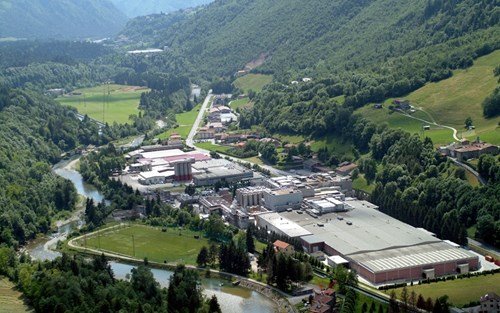
Haelixa partners with Damteks
All RadiciGroup products are designed for total end-of-life recyclability, many of them are obtained from recycled secondary raw materials.

4th November 2019
Innovation in Textiles
|
Bergamo
“I am very proud of the positive and tangible results achieved again in 2018,” said Angelo Radici. “They are a concrete response to the issues concerning our children, grandchildren and the communities where we all live. Our commitment to sustainability goes way back and our objective today is to continue along the same path we have been following: the company as a leader for change, promoting competitive sustainability that generates growing virtuous demand for reduced environmental impact products all along the value chain, while engaging all its stakeholders in the strategy.”
RadiciGroup products are its visiting card. All products are designed for total end-of-life recyclability, many of them are obtained from recycled secondary raw materials and still others are obtained from bio-source materials. All materials are manufactured in production plants certified to ISO standards, which provide reliable guidelines for setting up, managing and monitoring projects and laying out improvement plans.
In 2018, all Group sites completed the transition to ISO 9001:2015 and ISO 14001:2015, the new editions of the standards for quality management systems and environmental management systems, respectively.
“In the last few years, we have worked hard on innovation, consistent measurement of product impact and staff training. Moreover, sizeable investments have been made in our plants not only to improve their performance but also to make them part of the community. Our objective is always business continuity; we want to remain a reliable partner for all our customers and stakeholders in the long term,” added Mr Radici.
The RadiciGroup sustainability strategy is based on “participation and sharing” and requires the constant engagement of all its stakeholders, the objective being to keep working together in a dynamic equilibrium of ever changing challenges and scenarios, which now include ambitious Group targets regarding the United Nations Sustainable Development Goals (SDGs).
The 2018 Sustainability Report was drawn up using the data on over 20 indicators collected from 22 manufacturing sites and the parent company, with the involvement of about 70 employees from the various Group companies.
Regarding the resources used, in 2018 RadiciGroup saved 69% of the water used by reusing it several times and, in some plants, up to 60 times.
As concerns the consumption of resources per unit produced, during the 2016-2018 three-year period there was a 7% reduction in water usage, a 3.5% reduction in the use of energy from primary fossil sources and a 10% drop in overall CO2eq emissions. Over the longer 2011-2018 time span, the Group reduced its overall CO2eq emissions per unit produced by 56%.
Another significant figure from the 2018 Sustainability Report is the electricity mix, with green energy greater than 43% of the total, most of which generated by hydroelectric plants.
This positive environmental performance goes hand in hand with economic performance: 2018 net global value added was still on the rise, reaching EUR 280 million (EUR 258 million in 2017). “I would like to stress our continuous attention to our collaborators,” concluded Mr Radici. “They are our true ambassadors for sustainability inside and outside our Group. We continue to invest in them, also through training programmes to improve their professional and personal skills, with a special focus on issues concerning health and safety.”

Business intelligence for the fibre, textiles and apparel industries: technologies, innovations, markets, investments, trade policy, sourcing, strategy...
Find out more